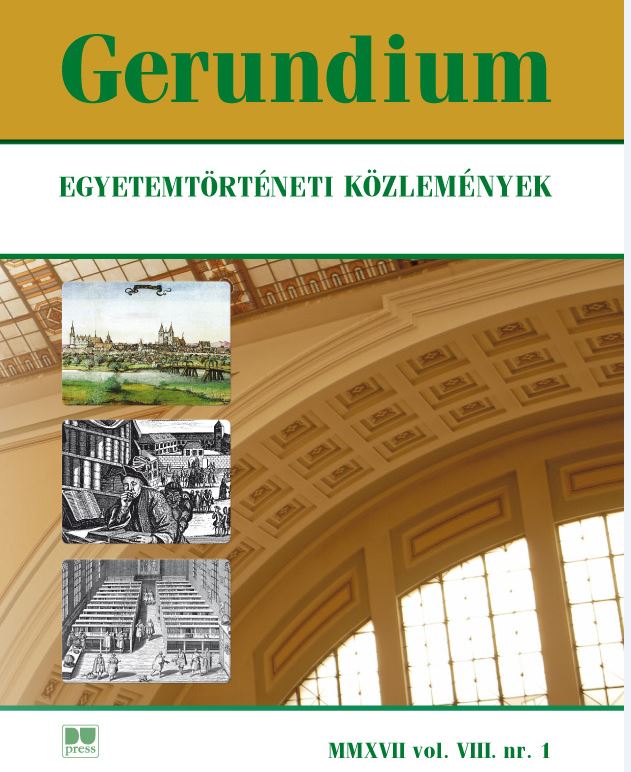Wittenberg neveltjei és a Tiszántúl reformációja
Szerző
Megtekintés
Hogyan hivatkozzuk
Absztrakt
The Students of Wittenberg and the Transtibiscan Reformation. The three generations of Hungarian ministers which returned from the University of Wittenberg each walked a different path in spreading the Reformation. Some of them remained followers of Luther (Mátyás Dévai Bíró, Imre Ozorai, István Gálszécsi, Sebestyén Károlyi Boldi). The next group represented a shift in the teachings, and they established church administration after the Swiss model, while still being direct students of Melanchthon. Later, they became bishops and deans, the elite of church leadership (Benedek Bánffyhunyadi Mogyoró, György Czeglédi, Ferenc Czeglédi, Péter Méliusz Juhász, György Gönczi Kovács alias György Fabricius). It is safe to state that both the Lutheran and the Calvinist forms of Reformation were distributed by students of Wittenberg, in which Melanchthon played a crucial role. His work was characterised by temperance and tolerance: he proclaimed fidelity in cases where it was necessary, and in the rest – for the sake of unity –, compliance. Many believe that this was what allowed the Swiss school of Protestantism to spread quickly across Hungary in the second half of the century. Concerning the dispersion and the positions of the Lutheran and the Calvinist branches throughout Hungary, however, not only confessional issues should be examined but contemporary politics, too. It was the Wittenberg generation that came after the death of Melanchthon (but was still educated in the spirit of Melanchthonian theology and humanism) which brought about the establishment of a church from the Swiss branch, organised along political lines and firmly dependent on them. This generation included Péter Károlyi and Lukács Hodászi Pap. 16th-century Hungarian Reformed theology was characterised by eclecticism which did not originate from Wittenberg alone, but Wittenberg provided it with the ground where it could develop.







